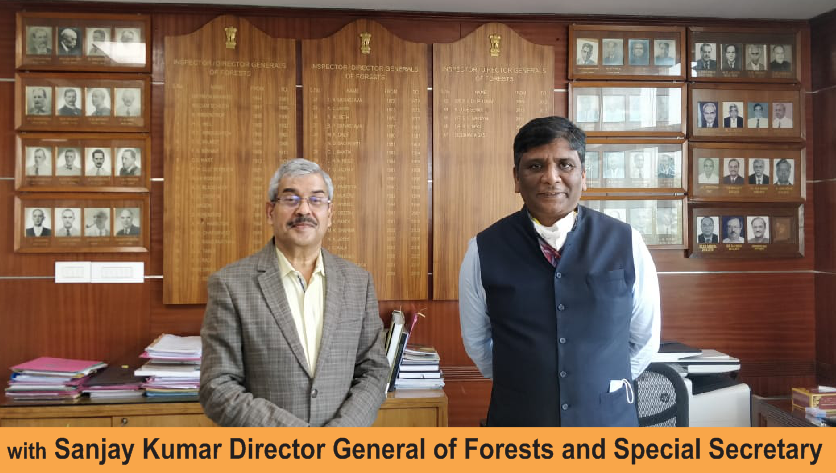
Development Council for Plywood and Allied Industries
- April 30, 2021
- 0
Plywood and panel industries don’ have any institutional forum where government and industries can discuss their issues for the speedy development of this sector. Expected results are not yielding due to lack of institutional mechanism in lack of any appropriate government platform.
However, it was pointed out by industry representatives that why plywood and panel industries are not having development council even though similar council namely, the Development Council for Pulp, Paper and Allied Industries constituted under section 6 of Industries (Development & Regulation) Act 1951 is functional and serving the purpose.
It can be seen that the share of Imports in Total Turnover is still quite high, more so in PB and MDF. This is because imported panel products are available at a cheaper rate than locally manufactured PB and MDF. With increasing thrust on agro-forestry, wood availability for manufacturing these products will increase and more units for manufacturing panel products can easily come up in the country. If encouraged properly, the demand and production of panel products will increase at a much faster place, which in turn will increase the demand for agro-forestry wood.
Here is a draft for constitution of Development Council for Plywood, Panel board, Laminates and Allied Industries (DC-PPLAI).
The State Wood Council may be constituted by the state government or UTs by resolutions of the respective government under the Chairmanship of the Chief Minister with 24 other members from amongst tree grower representatives, traders, wood-based industries, forestry research institutes and related government departments, with no more than 12 of the members being ex-officio.
a) The State Wood Council shall provide a forum for deliberation and collaboration amongst wood-based industries, government representatives, forestry institutions and other stakeholders for the establishment of interface between the wood industry and tree growers in the state.
b) The State Wood Council shall take steps for the promotion of wood technology innovations and enterprises. Intensive marketing and branding campaigns such as “Wood Is Good”, “Grow More Wood- Use More Wood” will be taken up for promotion of growing trees and usage of wood products.
c) The State Wood Council may constitute Regional Wood Councils for effective interface with tree growing farmers and wood-based industries.
d) The State Wood Council shall facilitate growing of all industrial wood species, native or exotic purely on productive consideration of demand and supply for the mutual benefits of tree growers and industries without any restrictions.
e) The State Wood Council shall promote systems for certification of improved planting material and accreditation of nurseries with the help of forestry institutions.
F) The State Wood Council shall be the final authority on the establishment of farm wood-based industries to maintain sustainable demand of such wood in the state.
G) The State Wood Council shall be the final authority on demarcation and designation of trade area for trader, agent and sponsor so as to encourage tree growers (farmers) to grow trees on their lands.
 H) The State Wood Council shall be empowered to provide for upgradation and deployment of tools and techniques for on-site harvesting, conversion, peeling, veneering, impregnation, modification, seasoning, storage and other such value additions to farm wood.
H) The State Wood Council shall be empowered to provide for upgradation and deployment of tools and techniques for on-site harvesting, conversion, peeling, veneering, impregnation, modification, seasoning, storage and other such value additions to farm wood.
I) The State Wood Council shall endeavour to remove the widespread mismatch between demand and supply of farm wood at the state and the regional level while guiding the establishment and distribution of wood-based industries to ensure less transportation cost to the farm wood through appropriate promotion policy and guidelines.
J) The State Wood Council shall encourage and promote capacity building and skilling of urban migrants and rural labour for wood-based industries in such areas as wood working and wood processing.
K) The State Wood Council may fix minimum and maximum price of local farm wood in trade areas based on market chain analysis or facilitate price assurance to tree growers and an assured supply of raw material to the industries by putting in place mutually beneficial farming agreements between the tree growers (farmers) and sponsors (forest-based industries).
L) The State Wood Council shall ensure the establishment of information technology-based systems for the issuance of Certificate of Origin and Ownership (COO) to all tree growers and for establishing an Indigenous system of legality of farm wood standard (Vocal for local):
To authorise local bodies, or any other entity, to be second party certifiers for the issuance of COO to the first party (tree growers).
To authorise a body or institute of Indian Council of Forest Research and Education, an autonomous body of Government of India as third-party certifiers for such farm wood.
To provide for registration of wood-based industries exempted from requirement of license.
To make provision for chain of custody and accounting of such wood as raw materials to the industries under legality framework.
m)The State Wood Council may develop the state’s own electronic trading and transaction platform for intra-state trade and commerce in a trade area following the chain of custody regime electronically.
N) The State Wood Council shall guide the State level Committee in the exercise of its powers and the discharge of functions.
O) The State Wood Council shall encourage State Forest Development Corporation and other state agencies to undertake plantations of long rotation tree species on government or community lands, which don’t find favour under Agro-Forestry / farm forestry. At least 10% of forests of each Forest Division should be under Plantation Working Circle to provide timber from long rotation tree species on scientific and commercial basis.
P) The State Wood Council shall meet at least twice in a year.































































